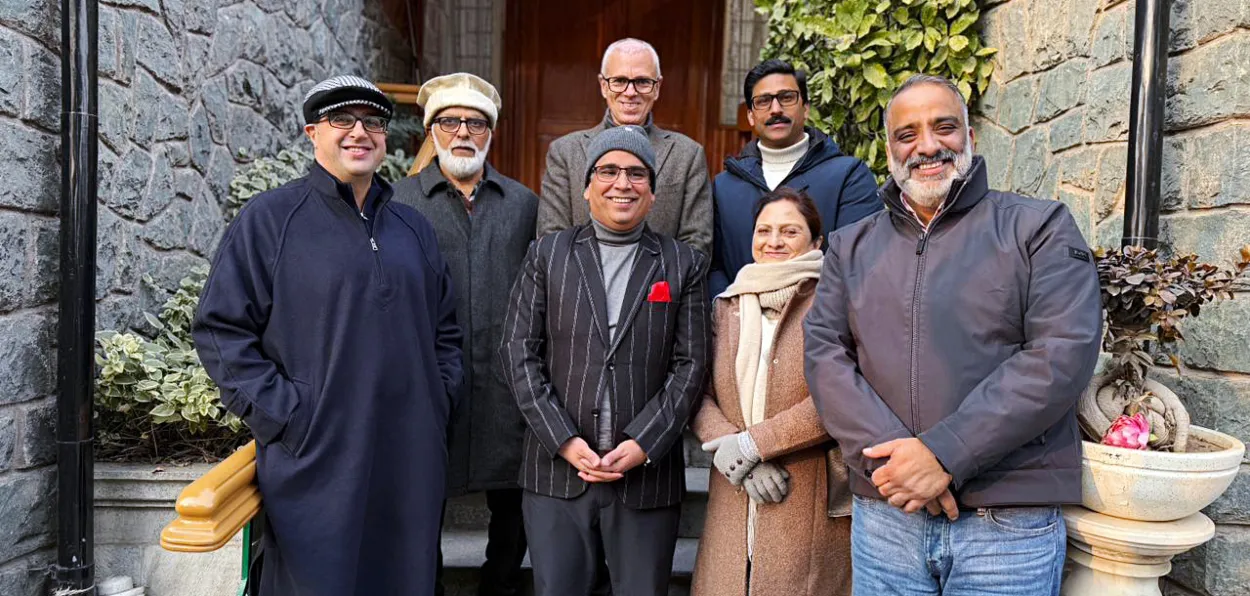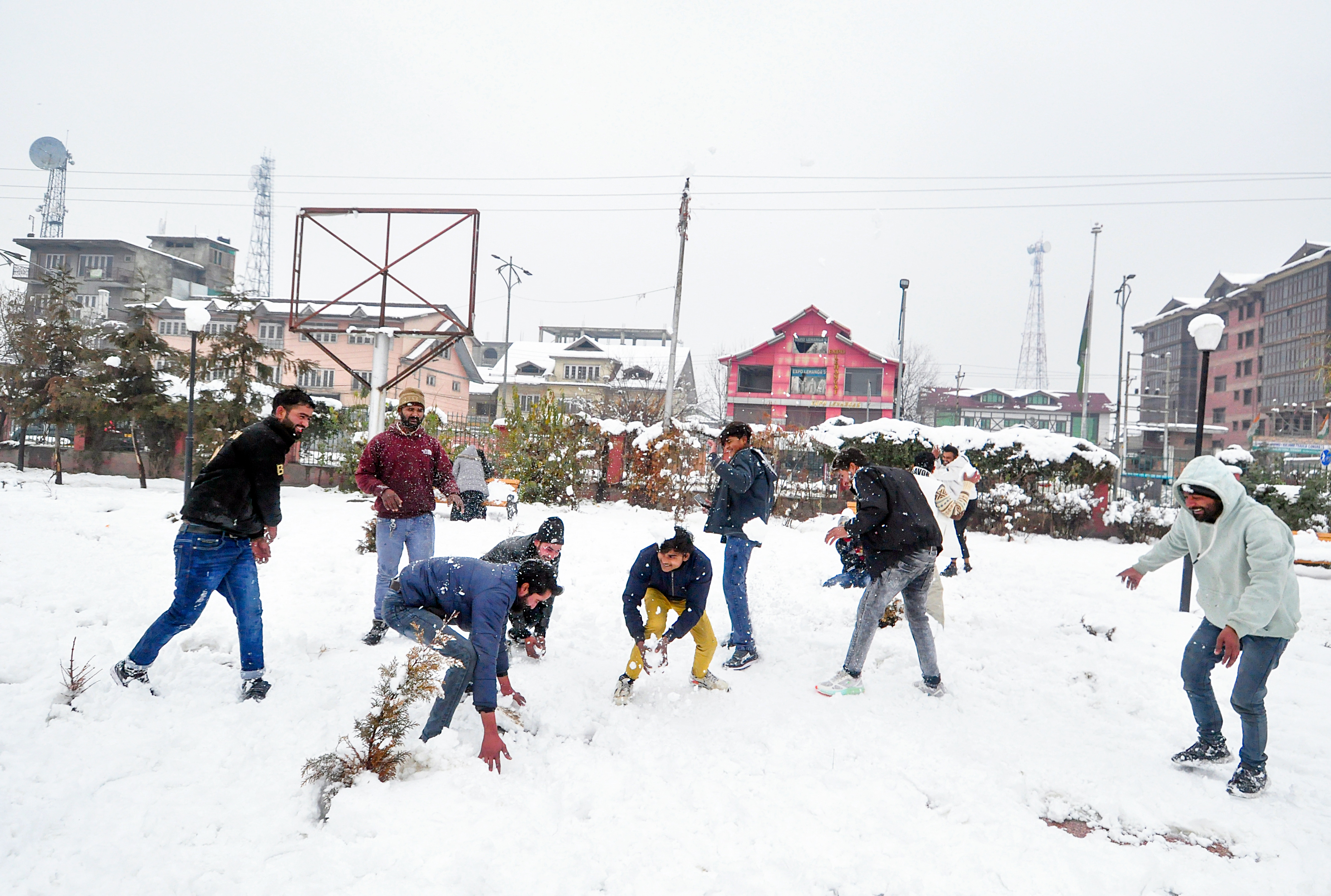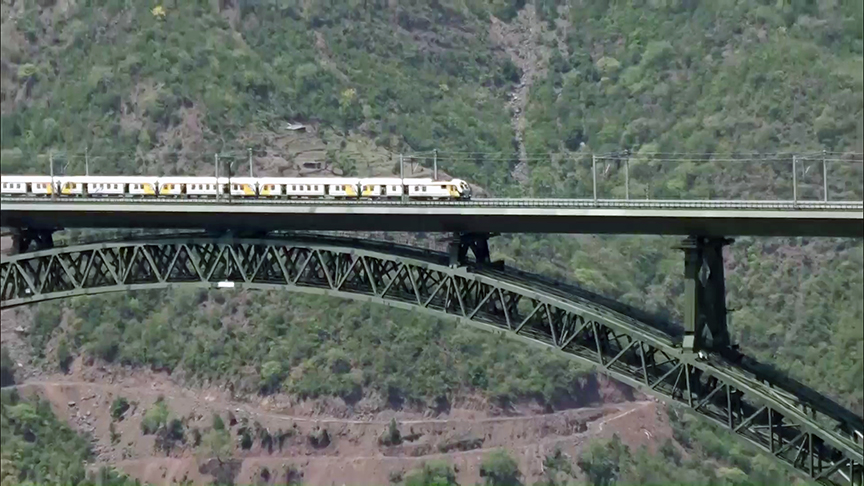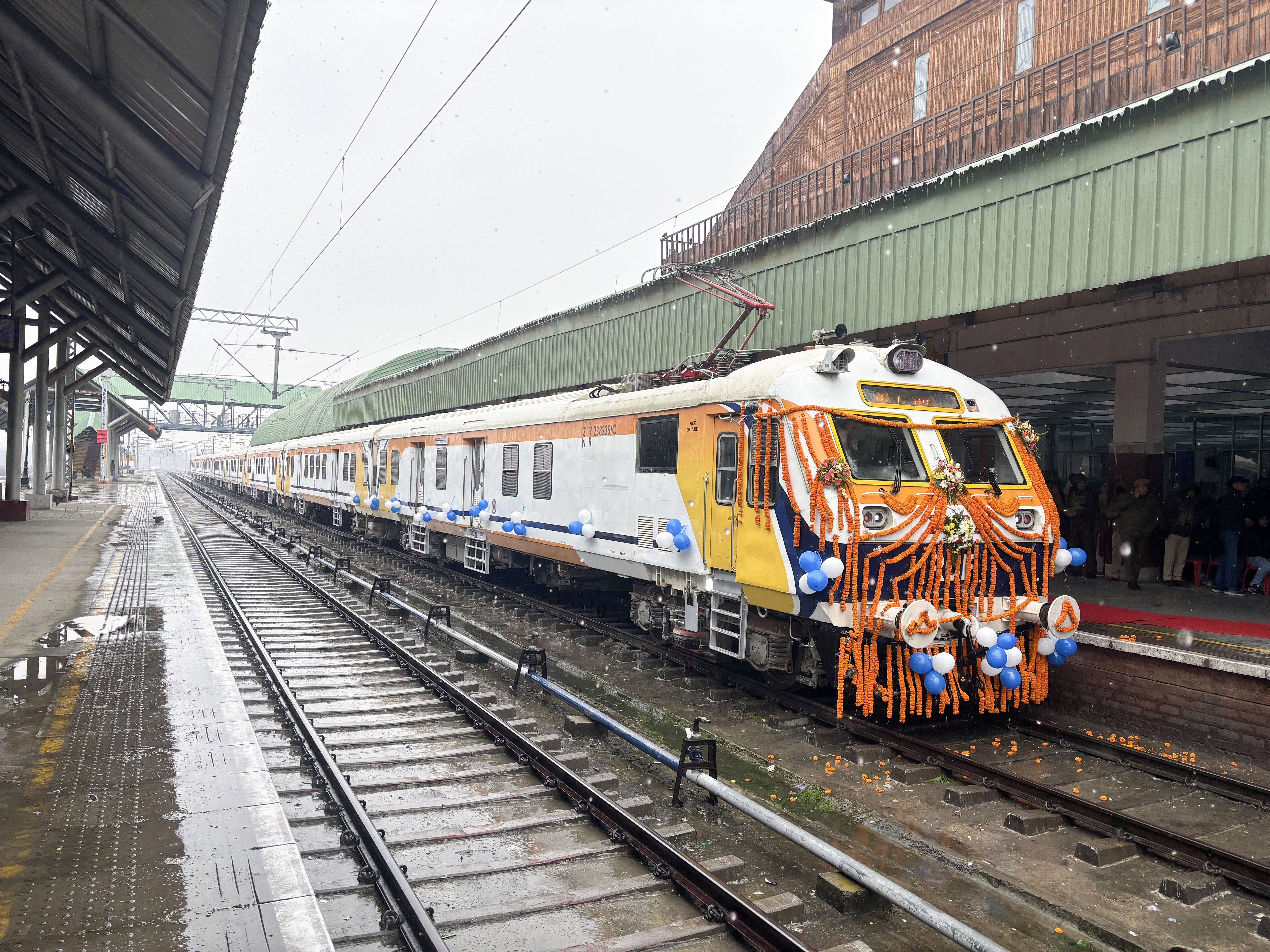
Ehsan Fazili/Srinagar
For the State-turned Union Territory of Jammu and Kashmir, 2024 has been a year of hope, and restoration of democracy, and yet it seems to be ending at a mixed note with aspirations of common people rising and the government struggle to cope with these.
Kashmir shot into international headlines in 2024, with the most participated elections held after ten years and epoch changes in its status and boundaries. Though National Conference regained power, the UT seemed to have got politically divided along regional lines with the BJP dominating the Jammu region at the end of elections.
Despite some high-profile terrorist attacks in the Jammu region, 2024 saw the trend of falling terrorism-related violence continuing; in Kashmir, sporadic cases of terrorists raising their heads from their hideouts surfaced with security forces annihilating them yet peace seemed to have found its feet and firmed up in Kashmir Valley.

Tourists playing with freshly fallen snow in Srinagar
Tourists continue to be flock to Kashmir in almost all seasons stimulating the local economy and social bonding between people of different regions and cultures with locals.
For example, Kashmir is seething with its annual rage over insufficient power supply in peak winter while Jammu is seeing an agitating over the ropeway project for the shrine of Mata Vaishno Devi in Katra which would make many lose their small livelihoods.
 Trial run of the Delhi-Baramulla train over the highst railway bridge over Chenab river
Trial run of the Delhi-Baramulla train over the highst railway bridge over Chenab river
However, the bigger problem before the Omar Abdullah government is the issue of reservations. J&K is the only region where reservations far exceed the open merit category seats in professional colleges and jobs. This has rendered communities out of the reservation ambit in distress and to the government's embarrassment; even elected leaders of the ruling party are joining such agitations.
Omar Abdullah has set up a committee to find a way out and is also awaiting the judgment of the courts as this policy has been challenged. However, whatever be the outcome, it’s going to pose a major challenge to the incumbent government.
J&K is also seeing the phenomenon of a lean and smart government with Omar Abdullah heading a six-member cabinet as against mammoth ones earlier. The pomp and show that traditionally was part of J&K’s political culture has been replaced by service oriented culture. Picking from the Modi Government’s culture, the cabinet minister are seen in public attending to their problems.

First electric train in Kashmir
As against expectations, Jammu is not complaining of discrimination, for Abdullah gave ample representation to the region with three of ministers - Surinder Kumar Choudhary (Deputy Chief Minister), Javed Ahmad Rana and Satish Sharma – being picked from the region.
The year also saw the immortality of the good old National Conference which romped home despite challenges in elections. Many political analysts had started writing its obituary after Omar Abdullah lost Lok Sabha elections to Engineer Rashid from Baramnulla constituency, a few months ago.
However, smaller parties and even bid ones like the PDP may have to rethink their survival.
As the year wraps up the trial run of the Delhi-Baramulla railway track has been completed; the date for the dream national project that seeks to link Kashmir with Kanyakumari through railways and gives the gift of all weather connective to J&K is about to be announced.
ALSO READ: Why Manmohan Singh never wanted to visit his ancestral home
2025 is all set to begin with excitement and dream-come-true moments!
